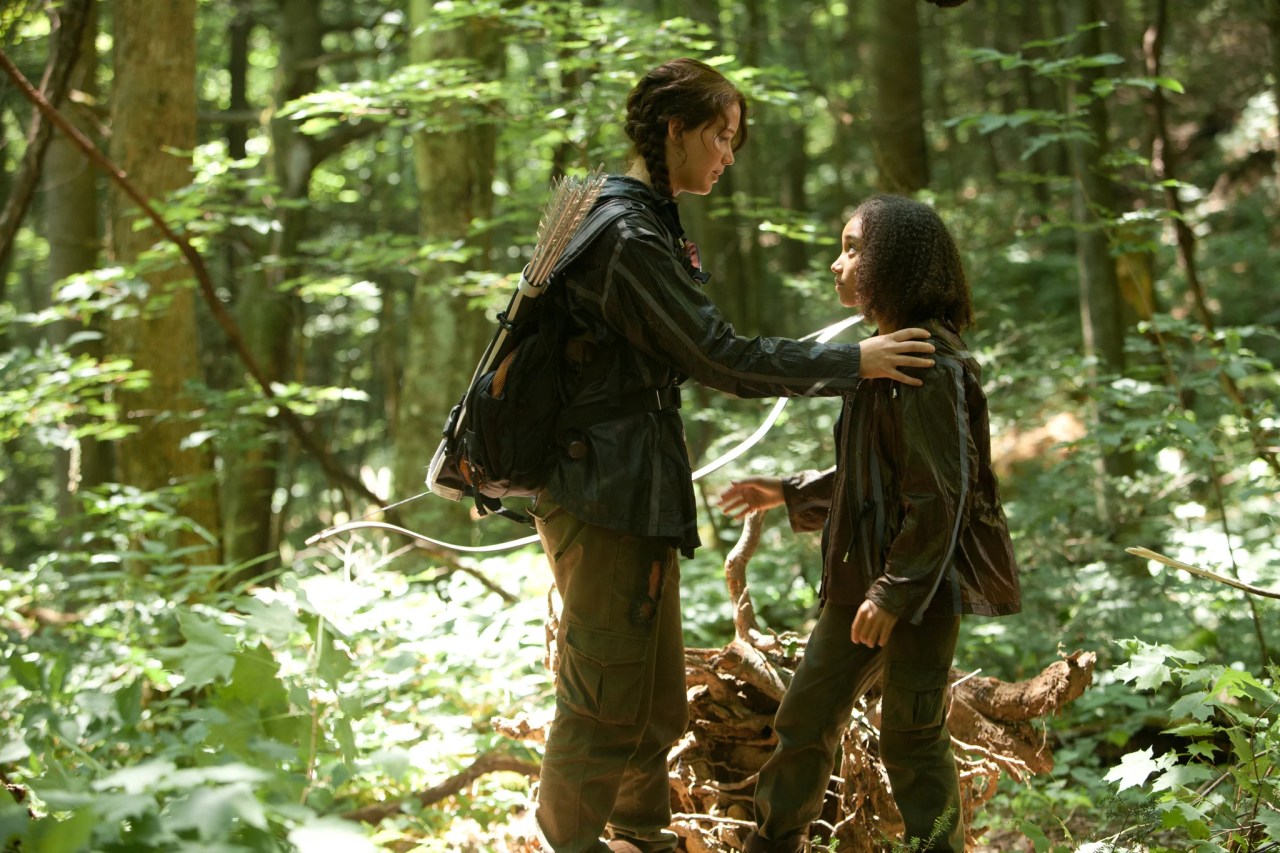
Why The Hunger Games’ Feminism Still Holds Up Today
The Hunger Games is probably the best-selling dystopian series, and with the success of the movie adaptions, it has gained even more popularity. I read the trilogy as a kid and watched all the films, and as I’ve gotten older, I’ve grown to appreciate the series more and more.
The popularity of dystopian novels boomed in the 2010s after The Hunger Games, and I ate all those up, too (Divergent, Legend, and The Selection are just a few others I read), but there’s a reason The Hunger Games is so popular: it’s one of the best-written series out there, up with Harry Potter and other classic novels read by children and young adults. It touches on many important themes that could be written in their own right—the desensitization of violence and violence as entertainment, classism, and the disconnect between rich people and what everyday people experience, warfare, and propaganda. But one of the most interesting themes in The Hunger Games that I noticed is one that is subtle, and that is feminism.
We all know by now that diversity and representation are important. Though it’s gotten better over the years, the amount of female characters in stories is still surprisingly low in comparison to real life. The Hunger Games turns that on its head, though, and manages to tell a story that not only touches on the themes I mentioned earlier but also leans into a theme of oppressed people being heroes in their own right and standing up against adversaries.
Much of the feminism in this series can be seen through the main character, Katniss Everdeen.
Katniss is a wonderfully complex female character. She is incredibly relatable, with the perfect mix of invulnerability and vulnerability. She is a skilled hunter and survivor, doesn’t wear her emotions on her sleeves, and appears emotionally and physically impenetrable. But as the series goes on, we see that this is not all that she is. Katniss cares a lot. She cares about her family, she cares about her friends, and she cares about the innocent people being harmed by the Capitol. Her entire motivation for volunteering in the games, as seen in the first book, was to protect her sister, Prim. She had no intention for rebellion, only wanting to keep her family safe. And this horrible experience is one that, though she survives, scares her and gives her trauma that she has to work through for the rest of her life.
Katniss is interesting because she’s afforded the complexity that’s too often only given to male heroes. She believes in justice, but she doesn’t set out to be a hero. In Catching Fire, Katniss is torn between her desire to protect her family in the midst of the rumblings of a revolution and joining the revolution herself to see the change she wants in the world. She’s flawed, she’s vulnerable, and best of all, she’s human.
Katniss isn’t the only well-written female in this series, however; in fact, The Hunger Games is filled with diverse female characters. There’s Rue, who wasn’t even a teenager when she was in the Games and is an exemplary example of intelligence and kindness. There’s Johanna Mason, who has a rough exterior but also layers of vulnerability. There’s Mags, a kind older woman who had previously volunteered in the Games to help a scared young girl. There’s Prim, whose optimism and childlike wonder give Katniss the hope she desperately needed. Even Effie Trinket, who initially comes off as a superficial person, realizes the horror of the games in the second installment and breaks down. Each of these characters, while not getting as much screen time as Katniss, have their own personalities and their own lives.
The Hunger Games is great at reflecting on real-world issues and showing what the world could be. The way they write female characters shows that women can be more than side characters. They don’t have to be the love interest all the time and do nothing outside of serving a void for male characters. They don’t have to have a life outside of men. They don’t have to be “weak,” mentally or physically—but they don’t have to be invincible, or simply “strong,” a moniker that only applies to female characters in a way to appear feminist but is just a way to write a female character without character development.
Female characters are allowed to be human, and humanity is the heart of The Hunger Games. It analyzes the way in which humans are treated, from the privileged to the oppressed. It critiques the idea that someone is lesser than another person because of their socioeconomic status, background, or other things people can’t control about themselves. The Hunger Games explores the ways people are oppressed and advocate for freedom, and that is perfectly aligned with feminism.
